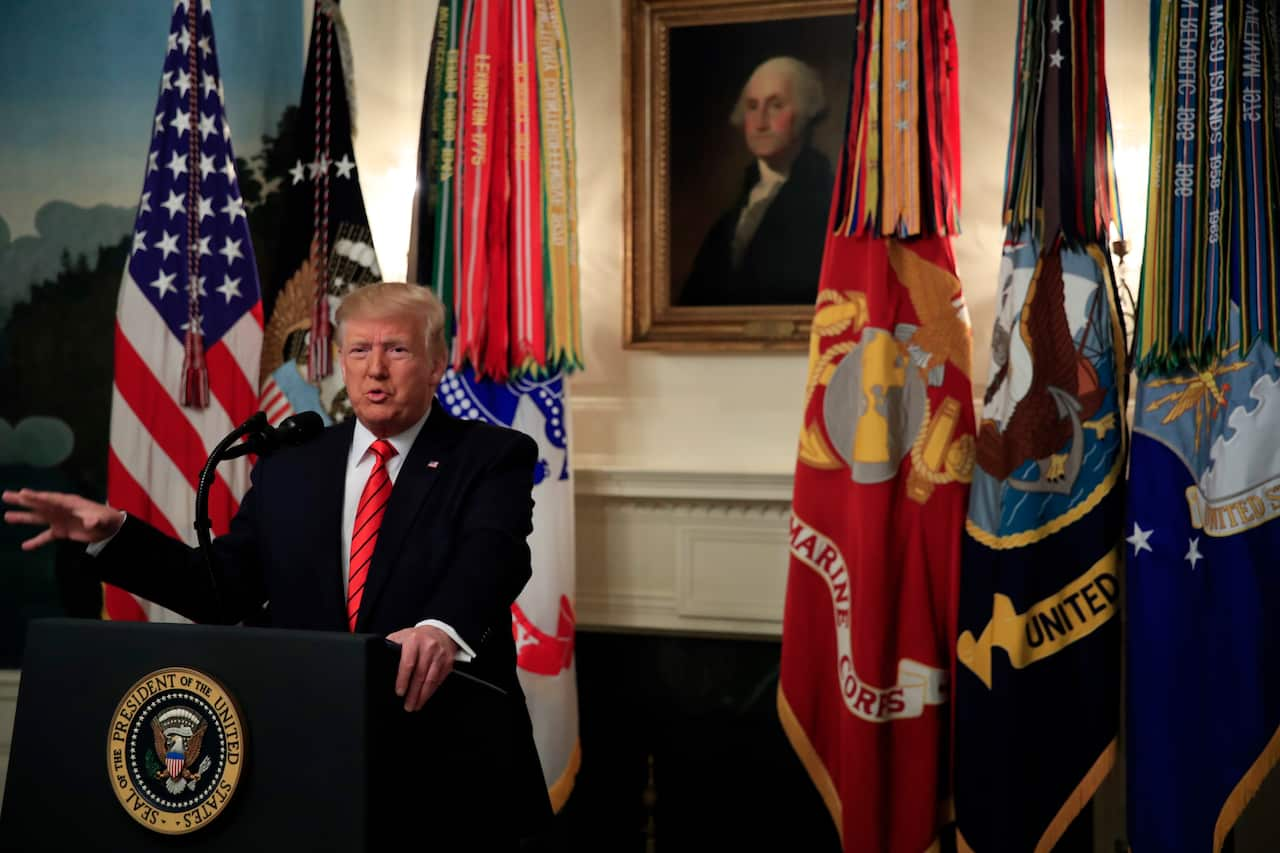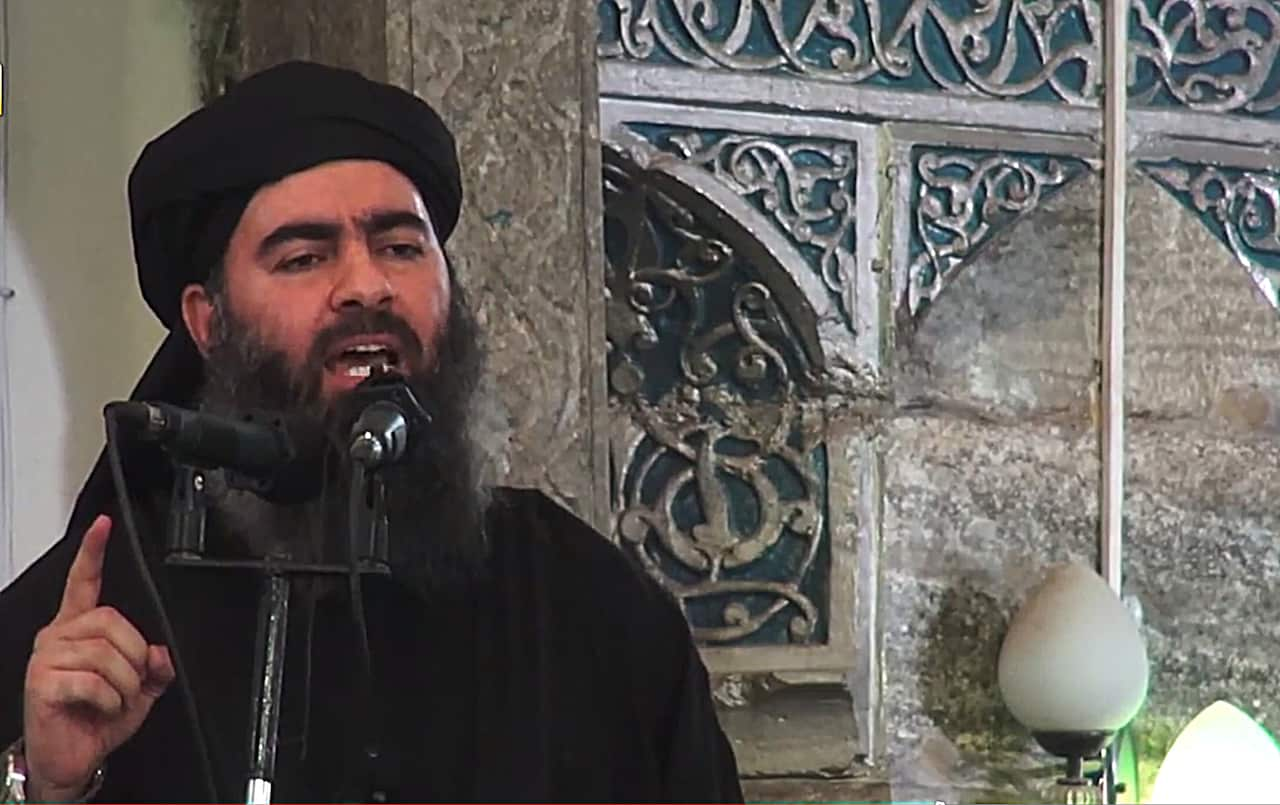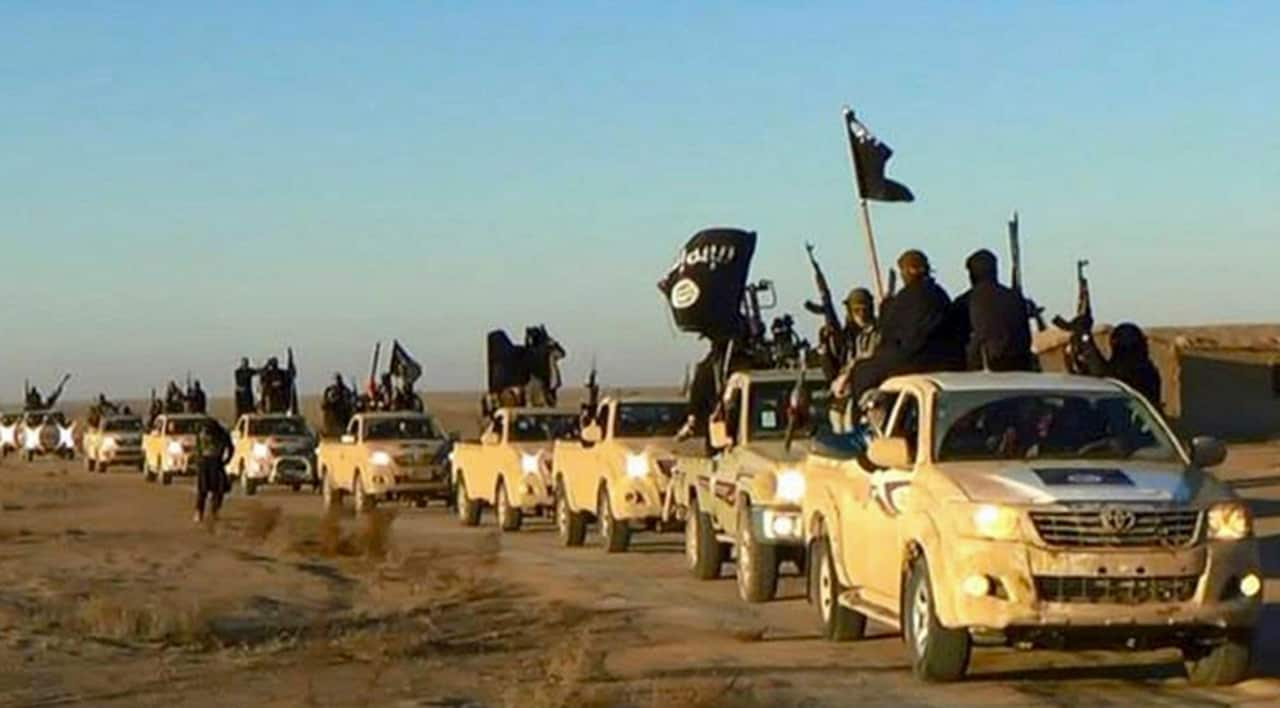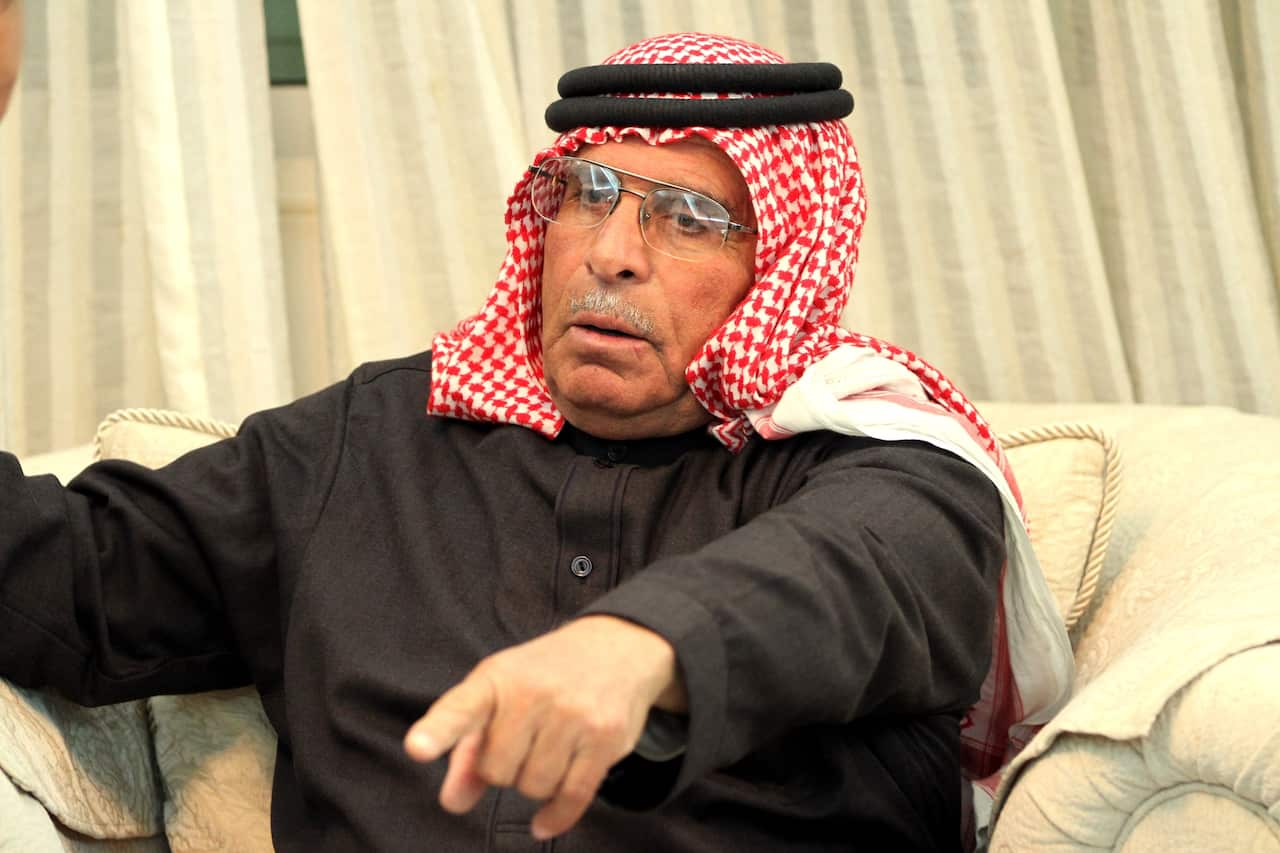Fugitive Islamic State leader Abu Bakr al-Baghdadi died "whimpering and crying" in a raid by US special forces in northwest Syria, President Donald Trump announced on Sunday, in what he called a major victory over the jihadist group.
Baghdadi killed himself during the raid by detonating a suicide vest after fleeing into a dead-end tunnel, Mr Trump said in a televised address from the White House.

He was positively identified by DNA tests 15 minutes after he died, the president said.
"He was a sick and depraved man and now he's gone," said Mr Trump, adding that capturing or killing Baghdadi had been the top national security priority for his administration.
The death of Baghdadi is a severe blow to Islamic State, which has been in disarray and has no declared successor as leader yet.
But the group has in the past proved resilient, continuing to mount or inspire attacks in the region and beyond despite losing most of its territory in recent years.
Prime Minister Scott Morrison warned that Baghdadi's death would not be the end of IS.
"He led a murderous, terrorist group responsible for widespread misery and destruction across large parts of Iraq and Syria," Mr Morrison said.
"Al-Baghdadi's death is a significant blow to ISIS and another important step in preventing its revitalisation.
"Australia will continue to work closely with coalition partners and the wider international community to counter ISIS, including by stemming their financing and stopping terrorist groups using the internet as a tool of recruitment and propaganda."
Mr Trump said "many" of Baghdadi's people were killed in the raid and added that in blowing himself up, Baghdadi also killed three of his children.
US forces suffered no personnel losses, he said. He also thanked Russia, Turkey, Syria and Iraq for their support.
Turkey said it was proud to have helped "bring a notorious terrorist to justice" and Israel's Prime Minister Benjamin Netanyahu congratulated Trump on an "impressive achievement".

But Russia's response was muted, with the defence ministry in Moscow saying merely that it had no reliable information on the U.S. raid.
Baghdadi had long been sought by the United States as head of a jihadist group that at one point controlled large areas of Syria and Iraq, where it declared a caliphate.
Islamic State has carried out atrocities against religious minorities and attacks on five continents in the name of an ultra-fanatic version of Islam that horrified mainstream Muslims.
"The thug who tried so hard to intimidate others spent his last moments in utter fear, panic and dread, terrified of the American forces coming down on him," Mr Trump said.
"He reached the end of the tunnel as our dogs chased him down. He ignited his vest, killing himself and his three children. His body was mutilated by the blasts. The tunnel had caved on him," Mr Trump added.
"He died ... whimpering and crying and screaming."
Sounds of planes
In the hours before Mr Trump's announcement, sources in the region had described the raid on a compound in the village of Barisha, in Idlib province bordering Turkey, in the early hours of Sunday.
"We woke up to the sound of planes, we went out and saw (forces) in front of us carrying weapons. 'Get on the ground, get on the ground!' (they said) so we went down," one local resident told Reuters TV.
"They handcuffed us and put us to the side. (They asked)'How do you know this man?' We said we don't know him, we would see people coming and going but we never interacted with them. So they said, 'you are safe, stay to the side'."
Iraqi state television broadcast night-time footage of an explosion and daytime images of a crater in the ground and what it said was the aftermath of the raid, including torn and blood-stained clothes.
Iraq's military said later in a statement that its intelligence services had located Baghdadi's whereabouts and had passed the information to the United States.
Mr Trump said eight helicopters carried the US special forces troops to the compound where Baghdadi was hiding, where they were met with gunfire before blasting their way in through the walls to avoid a booby-trapped main door.
The US forces spent around two hours in the compound, he said, adding that they had taken away "sensitive information" relating to Islamic State.
Russia "treated us great" by opening up airspace it controlled for the raid and Kurdish allies gave some helpful information, according to Mr Trump.
The Russian defence ministry, however, said it was not aware of any assistance to US forces.
The president said he watched the operation unfold in the Situation Room of the White House, with Vice President Mike Pence, Defense Secretary Mark Esper and the joint military chiefs. He added that Russia had not been aware of the nature of the US mission.
Withdrawal criticised
Mr Trump had faced withering criticism from fellow Republicans and Democrats for announcing a withdrawal of US troops from northeastern Syria earlier this month, which permitted Turkey to attack America's Kurdish allies as it sought to set up a "safe zone".
Mr Trump said the raid would not change his decision to withdraw troops from Syria.

Many critics of the pullout have expressed concern both at the abandoning of the Kurdish forces who had been instrumental in defeating Islamic State in Syria, and that the move might allow the group to regain strength and pose a threat to U.S. interests.
The successful targeting of Baghdadi in the raid could help blunt those concerns, as well as boosting Mr Trump domestically at a time when he is facing an impeachment inquiry in the U.S. House of Representatives.
Relief for a grieving father
At the height of its power, Islamic State ruled over millions of people in territory running from northern Syria through towns and villages along the Tigris and Euphrates valleys to the outskirts of the Iraqi capital Baghdad.
Thousands of civilians were killed by the group as it mounted what the United Nations called a genocidal campaign against Iraq's Yazidi minority.
It also caused worldwide revulsion by beheading foreign nationals from countries including the United States, Britain and Japan.
In one notorious incident, referred to by Trump in his TV address, a captured Jordanian air force pilot was burned alive in a cage.

On Sunday the pilot's father, Safi Al-Kasaesbeh, told Reuters TV he was relieved by news of Baghdadi's death.
"I am proud and happy on this day, after hearing of the death of Abu Bakr al-Baghdadi, this corrupt man, this insect, this virus that spread throughout the body of not only the Arab nation but also the Muslim nation, who distorted the image of Muslims and Islam," he said.
The group has claimed responsibility for or inspired attacks in dozens of cities including Paris, Nice, Orlando, Manchester, London and Berlin, and in nearby Turkey, Iran, Saudi Arabia and Egypt.
But in 2017 Islamic State lost control of Mosul in Iraq and Raqqa in Syria, and quickly thereafter almost all of its territory, turning Baghdadi into a fugitive.
During a three-year push by a US-led coalition, air strikes killed most of his top lieutenants and there were conflicting reports over whether Baghdadi was alive until IS published a video message by him in April.

